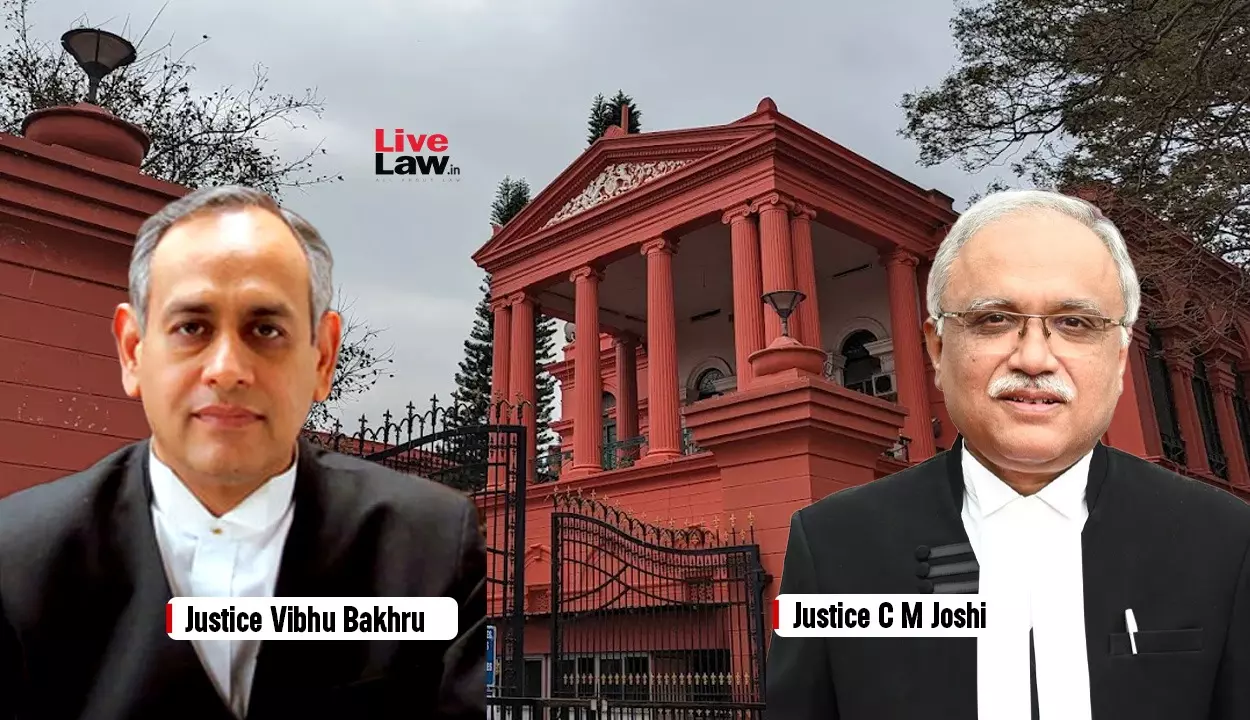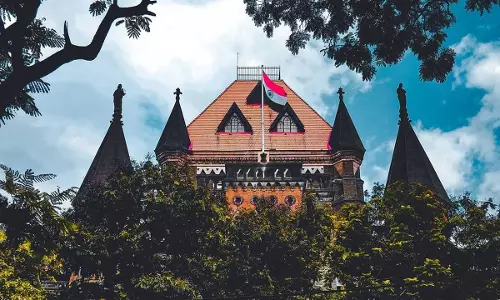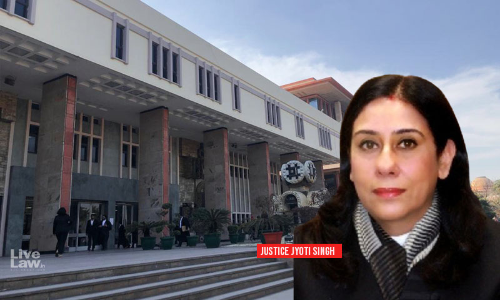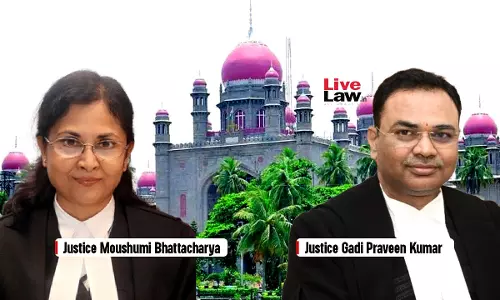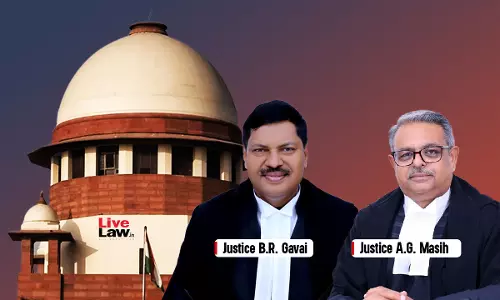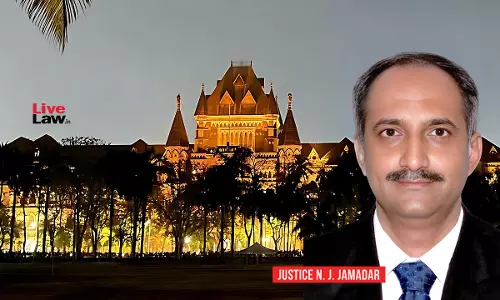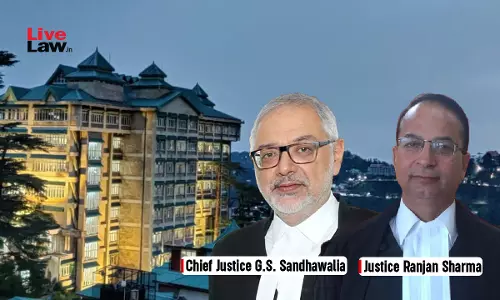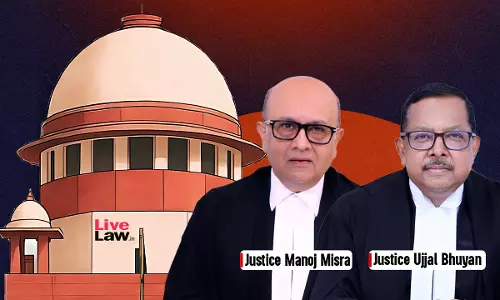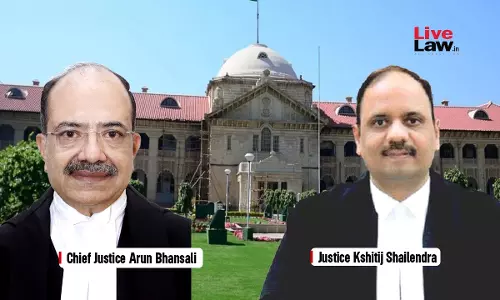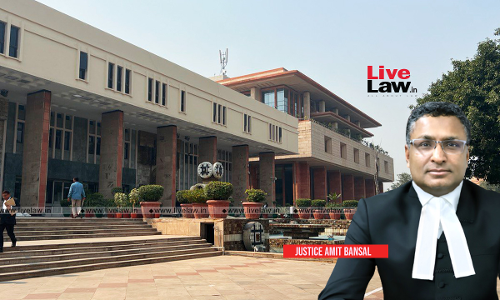Arbitration
Mere Change In Arbitral Rules Does Not Frustrate Arbitration Agreement: Karnataka High Court
The Karnataka High Court Division Bench of Chief Justice Vibhu Bakru and Justice C.M. Joshi has set aside interim injunctions granted by Commercial Court by which it restrained L & T Infra Investment Partners Advisory Pvt. Ltd. (“L&T Infra”) from proceeding with arbitration under the London Court of International Arbitration (LCIA) Rules against Bhoruka Power...
Mere Registration Of FIR Or Pendency Of Proceedings Before DRT Does Not Bar Reference To Arbitration: Bombay High Court
The Bombay High Court bench of Justice Advait M. Sethna has held that the disputes between Mangal Credit and Fincorp Limited and Ulka Chandrshekhar Nair are arbitrable under the Arbitration and Conciliation Act, 1996 (Arbitration Act) even though allegations of fraud and forgery were raised and a criminal was filed in which no progress has been made. The Court further held...
Claims Raised After Commencement Of Insolvency Proceedings Stand Extinguished, Not Amenable To Arbitration: Delhi High Court
The Delhi High Court Bench of Justice Jyoti Singh has observed that claims which are not a part of the Resolution Plan on the date of approval, shall stand extinguished and no person will be entitled to arbitrate such claims. Put differently, post-insolvency commencement date claims which are not made a part of the Resolution Plan are not arbitrable. Facts The present petition...
Section 9 As An Eviction Shortcut? Why Mumbai's Re-Development Battles Keep Coming To Court
Re-development in Mumbai is both necessary and contentious – thousands of dilapidated buildings need re-building, but the viability of each project depends on residents vacating their homes. Most residents cooperate, but a few resist re-development. When that happens, in some cases, housing societies, with the support of a the majority, nevertheless enter into development agreements with developers. The developers then often rush to the Bombay High Court under Section 9 of the Arbitration and...
Commercial Courts Act Envisages 'Marked Difference' Between Specified Value & Pecuniary Value: Telangana High Court
The Telangana High Court Division Bench comprising of Justice Moushumi Bhattacharya and Justice Gadi Praveen Kumar while hearing a Civil Revision Petition (“CRP”) observed that specified value forms the foundation of a commercial dispute for admission into the Commercial Courts Act, 2015 (“CC Act”). The pecuniary value, on the other hand, highlights the competence of the Court...
Arbitral Award Must Be Within Parameters Of Agreement Between Parties : Supreme Court Dismisses Chinese Company's Appeal
The Supreme Court has recently upheld the setting aside of an arbitral award of nearly ₹995 crore granted in favour of Chinese company SEPCO Electric Power Construction Corporation, holding that the arbitral tribunal had erred by re-interpreting contractual terms and departing from the agreed stipulations in violation of Section 28(3) of the Arbitration and Conciliation Act,...
Individual Flat Owners Forming Cooperative Society Are Bound By Arbitration Clause Contained In Sale Agreement: Bombay High Court
The Bombay High Court bench of Justice N.J. Jamadar has observed that when individual flat owners form a cooperative society to enforce rights created in favour of the individual members under the Agreements for Sale, the society cannot claim that it is not bound by the arbitration clause contained in those Agreements. The argument that it is not a signatory to the Agreements for...
'Lawful' Patently Illegal International Commercial Arbitration Awards – A Dichotomy
Sub-Section 2A of Section 34 of the Arbitration & Conciliation Act, 1996, introduced on October 15, 2015, apparently on account of the presumed negative fallout of Oil and Natural Gas Corporation Ltd. v. Saw Pipes Ltd., (2003) 5 SCC 705 for foreign business entities in India and 246th Report of the Law Commission of India (August, 2014), makes a clear distinction between a Domestic Arbitration award and an International Commercial Arbitration award, when it comes to “Patent Illegality”,...
Employer Liable To Reimburse Customs Duty Paid By Contractor If Exemption Certificate Not Provided At Import Stage: HP High Court
The Himachal Pradesh High Court dismissed an appeal under section 37 of the Arbitration and Conciliation Act, 1996 (Arbitration Act) filed by Himachal Pradesh Power Corporation Ltd. (HPPCL) upholding an arbitral award in favour of Orange Business Service India Technology Pvt. Ltd. The court held that the failure to provide exemption certificate by employer at the time of importation of...
S. 31(7)(b) Arbitration Act | Claim For Additional Post-Award Interest Barred When Award Fixes Rate Until Payment : Supreme Court
The Supreme Court on Wednesday (Sep. 24) held that if an arbitral award provides a composite interest rate covering the entire period from the cause of action to payment, the award holder cannot claim additional compound interest at the post-award stage under Section 31(7)(b) of the Arbitration and Conciliation Act, 1996 (“Act”). Section 31(7)(b) of the Act provides for post-award...
Rejecting Appeal U/S 34 A&C Act On Grounds Of Jurisdiction Without Indicating Alternate Remedy Amounts To Refusal To Set Aside Award: Allahabad HC
Recently, the Allahabad High Court has held that rejecting an appeal under Section 34 of the Arbitration and Conciliation Act on grounds of lack of jurisdiction without providing alternate remedy amounts to refusing to set aside award, making such order appealable under Section 37 of the Act.Section 37(1)(c) of the Arbitration and Conciliation Act, 1996 provides for appeals against orders...
Delhi HC Declines To Restrain Encalm Hospitality From Doing Business With Clients Of Dreamfolks Services, Says No Mandate Of Exclusivity
The Delhi High Court Bench of Justice Amit Bansal refused to enforce a negative covenant against Encalm Hospitality Private Limited holding that its agreement with Dreamfolks Services Limited did not mandate exclusivity between the latter and its clients and thus Encalm was not in violation of the Agreement. Facts The present petition was filed under Section 9 of the Arbitration...



